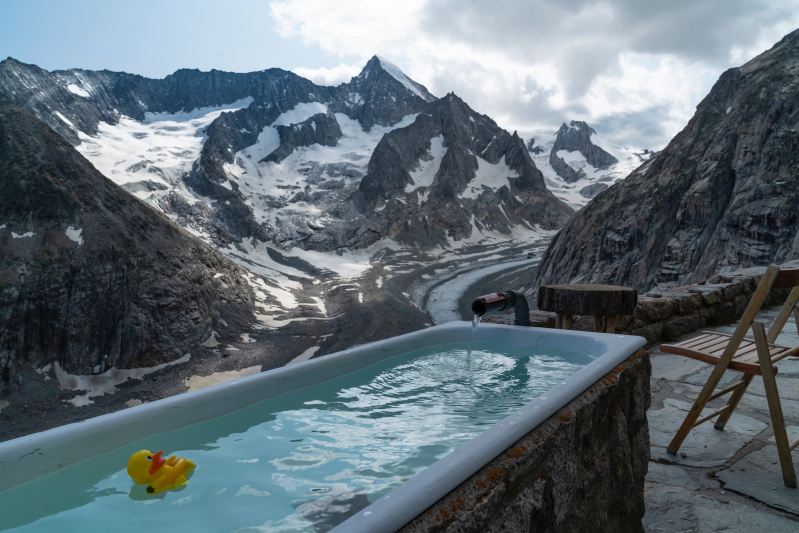Ice baths are all the rage, with celebrities like actor Mark Wahlberg and others sharing the benefits and how they take the cold plunge. At the same time, fitness buffs and experts also discuss the power of saunas, hot baths, and heat therapy. So, after a good workout sesh, should we immerse ourselves in the cold or warm ourselves up in a hot bath? Which has more benefits? Recently, researchers explored these two options post-workout. Let’s look at the research and what we can take away from it.
The study

In a small study recently presented at the 2024 Integrative Physiology of Exercise Conference in University Park, Pennsylvania, researchers from Ritsumeikan University in Shiga, Japan, wanted to take a closer look at the impact of cold dips and hot soaks. The three-part study involved 10 young men who performed 50 minutes of high-intensity interval running. Following the run, they would either sit down for 20 minutes or soak in a 104-degree tub or a 59-degree tub. All of the study participants experienced all three conditions during the study.
One hour after working out, the participants jumped as high as they could from standing and squatting positions.
The results

The researchers reported the following results:
- The men were able to jump higher after a hot soak compared to a cold one.
- There was no difference in muscle soreness with hot or cold water immersion.
The study suggests that hot water can help muscles get stronger and repair themselves following a workout more than cold water.
Hot water immersion aids muscle recovery

As the study’s lead author, Mamoru Tsuyuki, pointed out, hot water can increase blood flow, which helps the muscle fibers repair themselves and become stronger following vigorous exercise.
The takeaway

It’s important to note that this is a small study on recreational athletes. If you need to perform or workout twice on the same day, study author Tsuyuki shares that immersing yourself in hot water for just 15 or 20 minutes between games or sessions or during halftime is the best choice.
Other studies have shown that colder water can help relieve muscle soreness and boost athletic performance, and ice works well for injuries. What we can learn from this is that recreational athletes could perform better soaking in a hot tub rather than a cold one, although both could be beneficial. More research is needed comparing the differences, benefits, and disadvantages of soaking at both temperatures.
You might need to try both to determine what feels best for you, and it could depend on the day and what you have going on after your workout.




